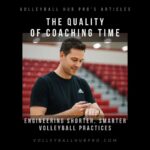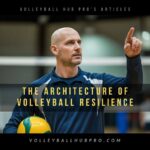
The Importance of Parents in Youth Sports
Whether we realize it or not, parents play an incredibly significant role in their children’s sporting experiences during the formative youth years. While the goal of youth sports programs should be to develop important life skills through fun, friendly competition, it is inevitable that parents’ involvement and level of engagement will significantly shape their children’s sporting journeys.
Due to the amount of time, energy and emotions that parents invest in supporting their children’s athletic pursuits, it is understandable that many desire to feel closely connected to this important part of family life. However, it is crucial that parents understand the subtle but powerful effect that their words, behaviors and expectations can have on their children’s development and enjoyment of sports.
When parents provide the right type of nurturing environment, young athletes are able reap maximum benefits that last far beyond just the game itself. Sports offer young people hands-on opportunities to learn valuable lessons about teamwork, discipline, perseverance in the face of challenges, and maintaining a positive attitude even in the absence of immediate rewards. With the guidance of wise parents, these life skills can take root and blossom.
However, if parental involvement veers into over-competitiveness or live vicariously through a child’s performances, it risks undermining the very growth that sports aim to foster. A supportive home is what allows many gifted athletes to thrive under pressure and handling both praise and setbacks with poise. This chapter will explore the pivotal role of parents in helping children of all abilities gain this level of character development through their volleyball experiences.
The Relationship Between Parents, Children and Coaches
In the world of youth sports, children inevitably find themselves operating under the guidance and authority of both their parents and their coaches. Navigating this dynamic requires sensitivity and cooperation from all involved to avoid potential pitfalls.
On one hand, parents are rightfully considered a child’s primary authority and desire the best for their wellbeing above all else. However, coaches must also be granted appropriate autonomy to run trainings and games in a way that treats all athletes fairly according to their set of rules. While parents love each child as an individual, coaches must consider the interests of the whole team.
The ideal relationship sees parents and coaches recognizing each other’s distinct yet complementary roles in supporting young athletes. Parents should avoid undermining the coach’s leadership through constant unsolicited advice or demands for special treatment of their own child. Similarly, coaches must communicate respectfully with parents to discuss any concerns over a player’s development.
Trust and understanding between these pivotal influencers allows children’s athletic and personal growth to occur seamlessly. Young volleyball players can fully focus on improving their skills and gaining confidence when not caught in tensions between home and their sports environment. They learn even difficult lessons like healthy competition if consistently guided by a unified front of caring, sensible adults.
With open communication and a shared priority of children’s well-being above personal agendas, parents and coaches can ensure youth sports aid rather than hinder development from a young age. Their cooperation undoubtedly shapes perceptions and experiences that last far beyond childhood.
Managing Expectations: Allowing Children to Pursue Excellence at Their Own Level
Few parenting decisions have as much potential to help or harm a child’s athletic development as the expectations parents place upon them. While the desire to see our children succeed is natural, imposing ambitions that far exceed their intrinsic abilities risks damaging self-esteem and love of the game.
It seems many parents fall into the trap of reliving their own athletics dreams or failures through their children. But each individual possesses a unique blend of talents, and pushing agendas focused on results over process often backfires. Young athletes feel this pressure even if unspoken, and come to view sports as a source of their parents’ pride instead of their own enjoyment.
Wisely, those who understand people thrive when self-motivated tend to set expectations empathetic to a child’s current skills and interests. Coaches note these athletes steadily progress at their own pace without fear of disappointing others. Freedom from outward judgment leaves room for discovery, learning from mistakes, and finding intrinsic reasons for striving.
Of course, encouragement to continuously give one’s personal best remains appropriate from parents. However, the “best” appropriate differs per child. With forbearance, guidance and unconditional support, parents can help anyone experience the character-deepening benefits of team sports while keeping performance in healthy perspective. A balanced home life where sports represent just one of many factors building self-worth allows children to fly freely on the field.
Avoiding Over-Involvement: Giving Children Space to Develop Independence
A common misperception of parental love involves wrapping children in proverbial cotton wool to shield them from difficulties. However, while started with good intentions, micromanaging a child’s athletic development or problem-solving their challenges can have unintended effects.
By middle-school age, kids begin to assert their independence within various social contexts like school and extracurriculars. Overbearing parents who insert themselves into matters their children could handle themselves – from disputes with coaches to forgotten equipment – fail to appreciate these budding capacities.
Such “Helicopter Parents” and “Snowplow Parents” clearing obstacles out of a child’s path may feel supportive, but deprive young athletes of opportunities to build resilience through adversity. Problem-solving skills acquired through self-reliance benefit people for life, whereas over-protection fosters helplessness.
With room to make their own choices and learn from natural errors, kids gain confidence tackling new challenges. And coaches note these empowered individuals usually progress much further as team players, leading by positive example when hardships hit the whole group.
While parents should always ensure children’s physical and emotional well-being, there exists a balance to avoid doing for them what they can manage themselves. Independence appropriate to age bolsters development on and off the field, better serving kids in the long run through life’s difficulties.
The Dangers of Living Vicariously Through Children’s Successes
It comes naturally for proud parents to sincerely celebrate their children’s athletics triumphs. However, when parental self-worth becomes excessively tied to a child’s performance quality or win-loss record, an unhealthy dynamic can emerge with unintended consequences.
Some parents grappling with past personal dreams or perceived failures unfortunately seek to fulfill those ambitions through their offspring’s accomplishments instead. In the sports context, this may show up as an intense fixation on competitive results or fame rather than less tangible benefits like teamwork and perseverance.
Unfortunately, the more a child senses their acceptance hinges on prosperity in a single arena, the greater pressure they experience to constantly achieve at increasingly demanding standards. This places undue strain on young athletes still developing psychologically and can remove the enjoyment from an activity.
Over time, an athlete may begin to constrict their natural talents out of fear of letting down an important figure. The dependency forged also risks continuing into adulthood if not addressed constructively.
Wise parents take pride in watching their child’s happiness and character growth regardless of ‘wins or losses’. They recognize that the richest rewards of youth sports lie beyond trophies, in lessons useful for life’s unknown challenges where success cannot be guaranteed. A balanced perspective protects both individual and team’s well-being in the long run.
Supporting Children Through Both Wins and Losses
While the hopeful dream of every parent is for their children to experience joy and success, an important life lesson is that difficulty and disappointment are inevitable parts of the journey too. In youth sports, administering unconditional love and perspective during defeats may prove even more valuable than celebrating high points.
Children learning their enthusiasm or abilities do not guarantee victory outcomes require reassurance of a parent’s steady presence. For athletes engrossed in competition’s emotional rollercoaster, a wise “port in the storm” reminds them of qualities like bravery, teamwork and sportsmanship exhibited regardless.
Parents who withdraw affection or criticize harshly when failure occurs risk damaging fragile self-esteem. Their role becomes instructing resilience by facing setbacks with calm problem-solving, not draconian reaction. Beyond sympathizing in upset, reframing a loss as one step in an ongoing learning process takes pressure off any single result.
With time, young athletes internalize that while giving one’s all feels good, outcomes remain out of personal control. Mental toughness and perspective grow from overcoming not just success, but also temporary disappointment without a supportive system eroding confidence.
A loving home base allows players to get back safely on the court, retaining passion without an unhealthy fear of vulnerability. There, consistent nurturance and perspective sow seeds of balanced perspective serving them in any future challenges, both within sports and beyond.
Respecting Boundaries: Parents’ Role Should be Supportive, Not Directive
While taking pride in a child’s sporting pursuits, involved parents would do well to avoid micromanaging roles they are not qualified for. Coaches dedicate extensive training to perfect technical and strategic expertise their role demands. Well-meaning suggestions from sidelines can undermine this authority and coaching philosophies.
Youths look to their leaders for guidance in improvement and situational decision-making during competitions. Constant second-guessing creates confusion and tension, damaging morale and focus. Some parents may relate better to assistants who accept their place offering encouragement, not instruction.
Similarly, attempts to lobby for preferential treatment or resolve personal disputes direct with administration circumvent appropriate processes, weakening team relations. Coaches aim for fairness considering all players’ needs, not parental favoritism.
Wise parents trust the coaching staff’s experience and empower athletes by filling a supportive position off-field. They avoid conflicts of interest consolidating behind coaches’ expertise, while voicing well-reasoned concerns through proper channels respectfully.
With attentive observation, questions can be asked respecting professional experience and discretion. But unasked advice risk inflicting life lessons about respecting expertise and authority in all fields of life. The healthiest approach supports children’s confidence navigating challenges within set structures.
Building Life Skills Through Youth Volleyball With the Support of Wise Parents
In conclusion, we have explored the nuanced yet profoundly important role that parents play in shaping their children’s experiences in youth sports programs like volleyball. With understanding and emotional intelligence, parents can help maximize benefits their children gain that translate into life’s unforeseeable challenges.
It is natural for parents to feel passionately invested in seeing their children succeed and enjoy athletics. However, if this investment is not balanced with perspective, respect for boundaries and consideration of broader developmental needs, it risks undermining the core purpose of youth sports.
With youth volleyball as our lens, we have discussed how cooperation between parents and coaches, reasonable expectations, appropriate involvement levels, and leading by wise example through ups and downs can foster resilience, independence and joy in young athletes.
If parents recall their role is supporting children’s happiness and learning rather than achieving personal goals through them, children are free to discover strengths, face struggles, and simply have fun alongside peers under expert guidance. Sports then achieve their potential to build confidence, self-awareness and relationship skills that serve far beyond the court.
Through open-hearted cooperation between all responsible for their wellbeing, youth find safe spaces to develop and belong – crucial foundations for healthily pursuing any endeavors later in life as self-assured, responsible and community-minded individuals. In this, the role of caring and conscientious parents proves invaluable but requires patience, empathy and discipline for children’s ultimate benefit.
The Guides of Volleyball Hub Pro
If you’re looking to delve deeper into this topic, I highly recommend reading the book authored by one of our collaborators:











One response to “The parents of young volleyball players”
[…] https://www.volleyballhubpro.com/the-parents-of-young-volleyball-players/ […]